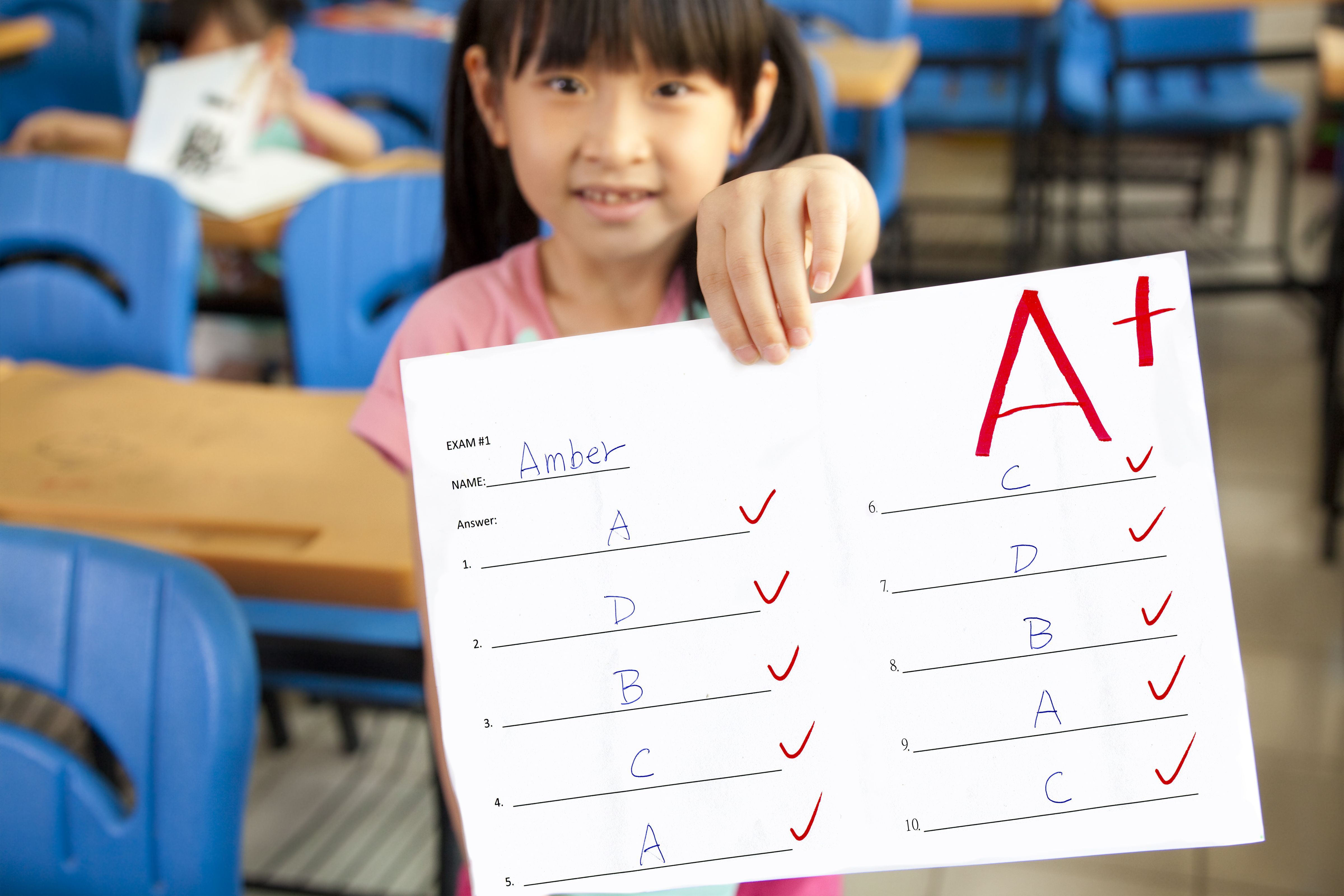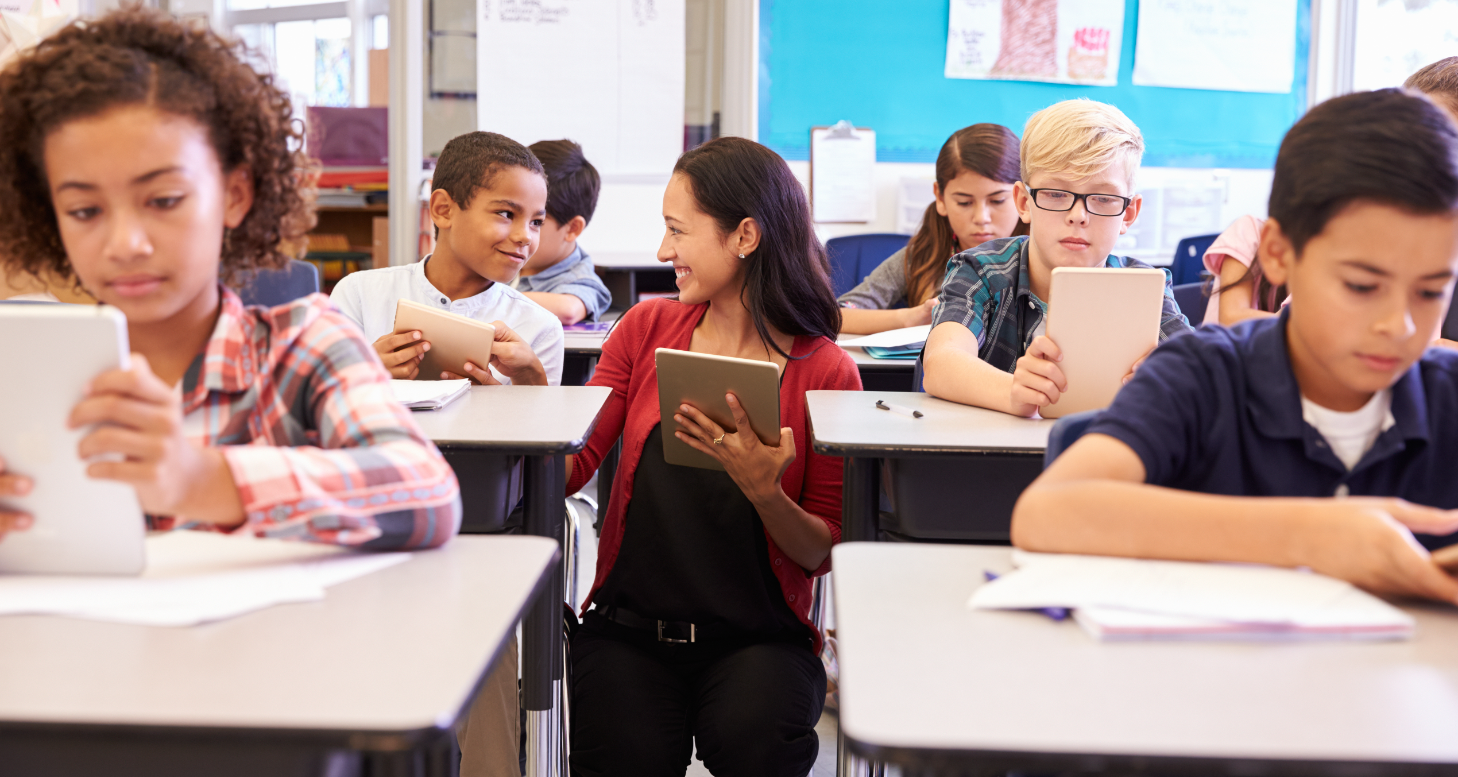From early years to mastery: Kindergarten to Grade School Peoria learning pathway
Wiki Article
Everything about Kindergarten: Recognizing the Significance of Early Childhood Years Education Programs
Kindergarten serves as an important phase in a kid's very early advancement. It introduces foundational skills crucial for future learning and social interactions. Via numerous tasks, kids involve in structured play that promotes cognitive growth. Comprehending the subtleties of different preschool programs can additionally illuminate their significance. What details benefits do these very early education and learning experiences use, and how do they form a kid's trajectory? The solutions might be more complicated than one may anticipate.
The Role of Preschool in Kid Growth
Some might watch kindergarten simply as a changeover stage prior to formal schooling, it plays a necessary duty in youngster advancement. This foundational phase promotes essential social, psychological, and cognitive skills that are essential for long-lasting understanding. In kindergarten, children take part in structured play, which boosts their capability to comply, share, and settle problems with peers. These interactions prepared for healthy connections and improved communication skills.On top of that, kindergarten introduces children to standard ideas in literacy and numeracy, sparking inquisitiveness and a love for knowing. Teachers direct students through activities that promote crucial and problem-solving thinking, necessary elements of intellectual growth. In addition, the atmosphere highlights routine and structure, assisting youngsters create self-discipline and independence. By concentrating on holistic growth, preschool warranties that children are not just ready academically however likewise socially and mentally for the challenges of future educational ventures.
Secret Advantages of Early Childhood Education
Early childhood education uses numerous benefits that can greatly impact a kid's growth and future success. Research study suggests that children that get involved in quality very early education programs display enhanced cognitive skills, far better language growth, and boosted social skills contrasted to their peers that do not attend such programs. These foundational skills are important as they establish the phase for scholastic accomplishment and lifelong discovering.Very early education and learning cultivates emotional growth by offering youngsters with opportunities for cooperative play and problem resolution, helping them create strength and empathy. In addition, these programs frequently assist connect the space for youngsters from varied histories, making sure fair accessibility to learning resources and experiences
Eventually, spending in early youth education not only benefits individual youngsters but likewise adds to more powerful areas, as informed people are most likely to engage positively in society and the workforce.
Different Kinds Of Preschool Programs
Various kindergarten programs provide to various academic ideologies and needs. Full-day choices provide extensive understanding time, while the Montessori method highlights self-reliance and hands-on experiences. Furthermore, play-based knowing approaches foster creativity and social skills, showing the diversity in very early childhood years education.Full-Day Kindergarten Options
Several parents and teachers identify the expanding relevance of full-day preschool options in early childhood education. Full-day programs typically give a more detailed learning experience, allowing children to engage in a range of tasks throughout the day. These alternatives commonly consist of a balanced educational program that incorporates scholastic, social, and psychological development. Some areas provide conventional full-day preschool, while others may give specific programs, such as twin language or thematic understanding environments. Furthermore, full-day preschool can suit functioning parents by lining up college hours with typical job timetables. Research study recommends that trainees in full-day programs commonly demonstrate enhanced academic performance and social abilities contrasted to their peers in half-day settings, making these alternatives increasingly preferred in many areas.Montessori Method Review
Although the Montessori technique is just among numerous instructional approaches, it has actually gotten substantial attention for its one-of-a-kind emphasis on child-led understanding and exploration. Established by Dr. Maria Montessori, this method focuses on promoting independence and self-directed activity in kids. Classrooms are normally created to urge motion and hands-on engagement with products, permitting youngsters to discover at their very own rate. Montessori instructors act as overviews, promoting discovering via observation rather than direct instruction. This strategy focuses on mixed-age classrooms, promoting partnership and peer learning. Furthermore, the Montessori method highlights sensible life skills and sensory activities, assisting kids create a strong foundation in both social and academic proficiencies. Moms and dads typically value the all natural development that this strategy supports in their youngsters.Play-Based Learning Strategies
Play-based understanding approaches are essential to countless preschool programs, highlighting the significance of play as an essential setting of discovering for children. These strategies urge exploration, creative thinking, and social communication, permitting children to take part in hands-on experiences that foster cognitive and emotional development. Various kinds of play, such as imaginative, positive, and physical play, are made use of to support discovering purposes across subjects like scientific research, math, and literacy. Furthermore, play-based programs usually include collaborative tasks, promoting team effort and interaction abilities. Educators observe and guide children throughout play, ensuring that discovering results are attained while maintaining a joyous discovering atmosphere. This strategy not only enhances scholastic preparedness yet also cultivates a long-lasting love for learning, making it an important component of early childhood years education.The Value of Play in Knowing
A substantial body of research study highlights the vital role of play in very early childhood years education, illustrating its extensive effect on discovering and development. Play works as an important go to my site mechanism where children explore their setting, develop cognitive abilities, and boost their problem-solving capabilities. Participating in imaginative play enables kids to experiment with various duties and circumstances, fostering imagination and critical reasoning.Play-based learning encourages youngsters to engage with products and ideas in a hands-on manner, making abstract ideas extra substantial and understandable. This experiential learning method not just records children's rate of interest yet likewise promotes intrinsic motivation, basic for lifelong learning.
With play, youngsters also fine-tune their electric motor abilities and spatial awareness, laying the foundation for much more intricate academic jobs. Essentially, focusing on play in early childhood education and learning programs is vital for supporting all natural development, gearing up children with the fundamental abilities essential for their future instructional trips.
Social Abilities Advancement in Preschool
Building on the structure developed via play, kindergarten works as a vital setting for social skills development. Throughout this formative stage, kids take part in structured tasks that motivate communication with peers. Through group projects, cooperative games, and shared tasks, they discover important abilities such as empathy, dispute, and interaction resolution.Teachers facilitate these interactions, leading youngsters in comprehending social cues and promoting favorable relationships. As youngsters browse numerous social scenarios, they establish a feeling of belonging and find out to appreciate varied viewpoints.
Additionally, preschool supplies opportunities for children to exercise turn-taking, sharing, and settlement, which are vital for constructing friendships. These experiences not just improve social proficiency but additionally add to emotional knowledge. As an outcome, the social skills obtained in preschool lay the foundation for successful communications in later educational settings and throughout life. The importance of social skills growth in preschool can not be overemphasized.
Parental Participation in Early Education And Learning

Additionally, when moms and dads show a passion in their youngster's education and learning, it cultivates a favorable perspective in the direction of knowing. When they feel sustained, children are extra most likely to develop a sense of belonging and inspiration to prosper. In addition, parental participation can enhance a youngster's psychological wellness, bring about better strength in encountering school challenges. Consequently, fostering a collaborative atmosphere in between home and college is crucial for maximizing very early instructional experiences and results.
Preparing for the Transition to Elementary College
As kids come close to completion of their preschool trip, planning for the adjustment to grade school comes to be significantly vital. This shift requires mindful preparation and support from both instructors and parents. Acquainting youngsters with the new setting, regimens, and expectations of primary institution can reduce their anxiety and promote self-confidence.
Schools usually provide orientation sessions that present children to their future class and teachers, fostering a sense of belonging. In addition, parents can take part in conversations about the modifications in advance, emphasizing the amazing opportunities for finding out and social communication.
Encouraging independence in daily jobs, such as clothing and complying with a timetable, can also be beneficial. Exercising essential abilities, such as letter recognition and fundamental math, prepares children academically for first quality.
Ultimately, a collective effort amongst parents, teachers, and the area guarantees a smoother change, laying a strong structure for a successful instructional trip.
Frequently Asked Questions
What Credentials Should Kindergarten Teachers Have?
Preschool educators ought to have a bachelor's degree in early youth education and learning or an associated area, along with state qualification. Additional certifications may include specialized training in kid advancement, classroom monitoring, and reliable teaching methods.Just how Do I Pick the Right Preschool Program?
To select the appropriate kindergarten program, one must consider variables like educational program, training approaches, course size, educator certifications, and moms and dad reviews. Going to centers and observing communications can also supply beneficial insights into the program's environment.What Should My Child Learn in Kindergarten?
In kindergarten, a child should learn fundamental abilities such as basic reading and writing, counting, social interactions, problem-solving, and motor abilities. These expertises cultivate cognitive growth and prepare them for future academic difficulties.Are There Age Demands for Preschool Enrollment?
Many states call for youngsters to be 5 years old by read review a specific day, commonly September 1st, for preschool registration. However, specific age demands can differ, so examining regional college area laws is essential.
Just How Can I Support My Kid's Discovering in the house?
To sustain a child's understanding in the house, moms and dads can develop a routine, provide appealing academic products, encourage analysis, participate in hands-on activities, and foster open communication to support interest and critical reasoning abilities.Preschool offers as a crucial stage in a youngster's early growth. Some might view kindergarten simply as a changeover stage before formal schooling, it plays a necessary function in youngster growth. In addition, preschool introduces children to basic principles in proficiency and numeracy, stimulating interest and a love for discovering. Play-based learning strategies are integral to many kindergarten programs, stressing the relevance of play as a basic mode of learning for young children. In preschool, a child must find out fundamental skills such as fundamental analysis and writing, counting, social communications, problem-solving, and electric motor skills.
Report this wiki page